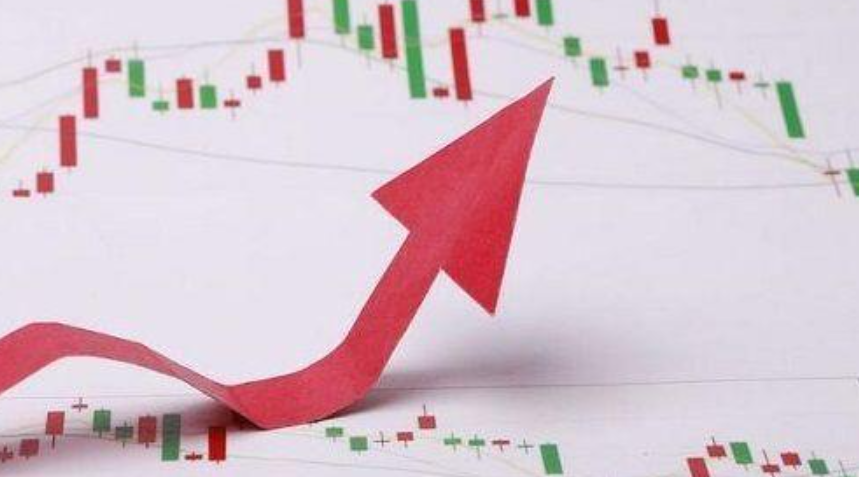In a remarkable turnaround, China's A-share market has exhibited a surprising independence from the declines observed across the Asia-Pacific region, particularly in Japan's stock market.
While other major markets faced downturns, A-shares responded positively today, with the number of gaining stocks surpassing 5,000 and all three main indices reflecting upward momentum. Notably, the A50 index surged sharply, lifting Hong Kong stocks alongside it.
Analysts attribute this bullish performance to four main factors:
Firstly, there will be an enhancement in the monitoring and regulation of the connections between domestic and foreign markets, as well as between spot and futures markets. This aims to increase the effectiveness and foresight of regulatory efforts. By cooperating with the People's Bank of China, structural monetary policies will be better implemented to bolster strategic reserves and stabilize market mechanisms.
Secondly, despite a continued weakening of the Renminbi recently, regulatory authorities have intervened to stabilize markets, such as by raising macro-prudential parameters for cross-border financing and issuing offshore central bank bills.
Thirdly, there has been a noticeable tightening of regulations in the government bond market, indicated by significant declines in 30-year bond futures and a general rise in yields on key interbank bonds.
Lastly, foreign capital is suddenly optimistic about the potential of Chinese stocks.
A-shares Surge
In an unexpected explosion of growth, the A-share market's indices showed substantial gains. By the time of reporting, the ChiNext index surged over 3.2%, the Shanghai Composite Index rose 1.92%, the Shenzhen Composite Index jumped 2.83%, and the Northern Exchange 50 saw an almost 6.5% increase. Sectors such as Xiaohongshu concepts, robotics, the Huawei supply chain, and software development led the surge, with nearly 5,300 stocks rising across the exchanges.
Simultaneously, the Hang Seng Technology Index rose over 2%, with the Hang Seng Index expanding its gains to 1.4%. Furthermore, the A50 experienced a sharp rise of more than 1.6%. Even with the U.S. dollar index moving upwards, the Renminbi showed strong performance today.

In contrast, the performance of external markets was less than favorable. By the early market close, the Nikkei 225 index had dropped 1.8%, the Topix index decreased by 1.3%, and U.S. stocks exhibited weakness. What is driving the A-share market's resilience despite these external challenges?
In addition to the positive signals released by regulators last night, the morning’s performance within the debt market also seems to send a crucial message. Earlier today, yields on key interbank rate bonds generally increased at the start of trading, with the yield for the 10-year policy bank bond “2024 National Development Bank 15” rising by 0.75 basis points to 1.6850%, while the yield for the 10-year Treasury bond “2024 Affixed Coupon 11” increased by 0.5 basis points to 1.65%. Meanwhile, the 30-year Treasury yield rose similarly by 0.5 basis points to 1.9050%. The trend of government bonds has clearly weakened recently, whereas the Renminbi has strengthened against other non-U.S. currencies.
Foreign Investment Sentiment
The sentiment among foreign investors is also shifting. The 25th UBS Greater China Conference kicked off in Shanghai yesterday, featuring a session on "Outlook for Chinese Stock and Investment Opportunities.” UBS Greater China Research Director Linda Lin forecasted that China's performance would surpass that of emerging markets and the world, viewing the overall stock market with optimism and favoring MSCI (China) and Hong Kong stocks. He pointed out that the Federal Reserve's rate-cutting schedule remains uncertain, possibly proceeding more slowly than initially anticipated, indicating a continued "strong dollar" situation.
UBS Securities' China Strategy Analyst Meng Lei expressed optimism about the Chinese market. On investment themes, the focus remains on state-owned enterprises, market capitalization management, and mergers and acquisitions, starting with large-cap stocks before moving to small-caps. Growth and value can undergo some reassessment in the short term, but after a market rebound, adding to growth positions is advisable.
Linda Lin elaborated that by 2025, stock asset allocations globally—especially for emerging markets—will likely experience significant volatility. UBS anticipates macroeconomic growth to slow down globally in 2025, influenced primarily by U.S. interest rates. The uncertainty surrounding rate cuts implies that this year could see a "strong dollar" environment, representing a more conservative stance towards emerging markets.
He expressed expectation for a more proactive fiscal policy in China by 2025, positively impacting the economy. Compared to global conditions, China is anticipated to fare better, leading UBS to have a positive outlook for the overall stock market in China. On the question of when the real estate sector will hit bottom, he believes that supportive policies will materialize, benefiting corporate earnings.
It is worth noting that UBS is not the only entity expressing optimism. Goldman Sachs' Chief China Equity Strategist Liu Jingjin and his team published a report predicting that the MSCI China Index and the CSI 300 Index will increase by approximately 20% by the end of 2025, maintaining positive recommendations for A-shares and offshore Chinese stocks.
According to Goldman Sachs' economic team, the Chinese government has implemented robust policy support measures that will help alleviate challenges both in the real estate sector and from external factors. Additionally, these measures are expected to trigger a long-awaited shift in the growth model from trade and investment-driven growth to one focused on domestic demand and consumption.